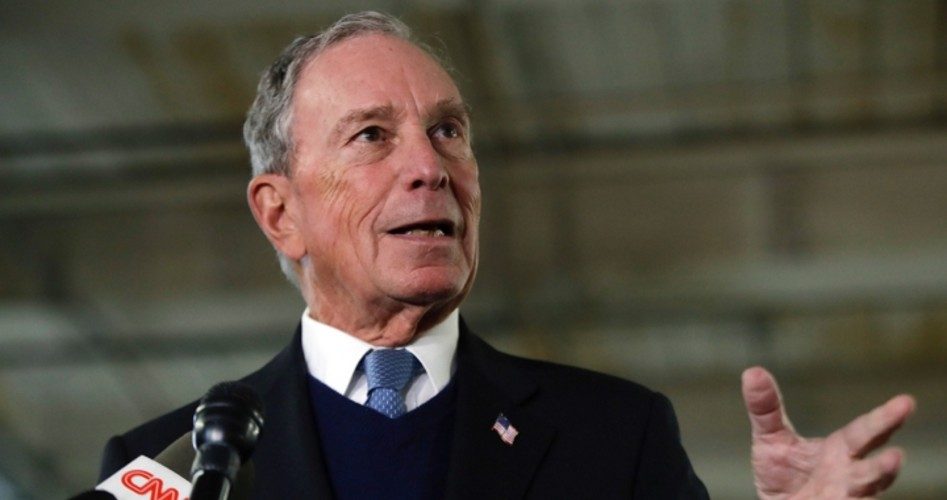
Mere days after former New York Mayor Michael Bloomberg announced that he was filing as a Democrat candidate in primaries in Alabama and Arkansas, his rivals gave him an inkling of what he would face if he decides to join the field of Democrats vying for their party’s nomination. Bernie Sanders told supporters during a Saturday rally in Iowa: “Tonight we say to Michael Bloomberg and other billionaires: Sorry, you ain’t going to buy this election.” During an interview with NBC News, Elizabeth Warren intoned: “I don’t think that democracy should be about people coming in and buying elections.”
To them, his wealth is an obstacle, a detriment, a negative.
To the voters, his wealth isn’t nearly as much of an obstacle as his lack of favorability, especially among the party’s youngest cohort. The results of a poll taken by Morning Consult, which were released on Sunday, showed that nearly a quarter of those registered Democrat voters quizzed dislike him, with just four percent of them favoring him over the other candidates. This immediately put Bloomberg in sixth place behind not only Biden, Sanders, and Warren, but also Pete Buttigieg and Kamala Harris, and just one point ahead of Andrew Yang. Bloomberg’s “net favorability” — the share of those voters who approve of him minus those who disapprove — is the worst among the party’s youngest voters, aged 18-29.
There’s also his age: Bloomberg turns 78 in February; he’s nine months older than Biden.
He would be very late to the game, and he’s already announced that, if he runs, he’ll skip the first four states’ primaries in order to focus on Alabama and Arkansas. He carries a lot of baggage, including his policy of “stop and frisk” while mayor of New York City, which riled up Democrats who considered it racist and which was later ruled unconstitutional.
History is not on Bloomberg’s side. As Bill Scher noted at Real Clear Politics, the track record of success of late presidential entrants is poor. So his wealth may not be the advantage many assumed it would be. Consider that Hillary Clinton’s campaign sent nearly $1.2 billion in a contest she lost in 2016 to Donald Trump, whose campaign spent half as much.
Altogether then, Bloomberg’s challenges include the fact that he is old, white, and male as well as rich — things that cannot be “fixed” — which hardly make for a winning combination among Democrat voters.
Then again, Bloomberg could, as The New American has suggested, draw off just enough moderate votes from Joe Biden to hand the nomination to Warren.
Photo: AP Images
An Ivy League graduate and former investment advisor, Bob is a regular contributor to The New American, writing primarily on economics and politics. He can be reached at [email protected].
Related article:

